MercoPress. South Atlantic News Agency
International
-
Saturday, July 25th 2009 - 07:19 UTC
UK fifth successive quarter of recession in April-June
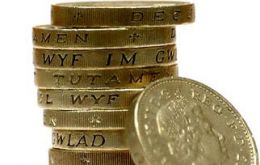
Hopes of a swift end to the United Kingdom recession were shaken after figures showed a far worse than expected decline of 0.8% in the economy between April and June. The UK's fifth successive quarter of recession was much deeper than the 0.3% forecast, stunning experts and business leaders.
-
Saturday, July 25th 2009 - 07:17 UTC
Falklands’ combat tested Harrier celebrates 40th birthday

The British designed and manufactured vertical take off Harrier which saw its first combat operations during the Falkland Islands campaign in 1982 this week, Thursday 23 July celebrated its fortieth birthday.
-
Saturday, July 25th 2009 - 07:13 UTC
Tories smash Labour in Norwich North by election

Britain’s Conservative leader David Cameron hailed his party's victory in Norwich North as “historic” and branded Labour's campaign as “despicable”. Cameron said by-election winner Chloe Smith, 27, was a credit to the party and the kind of MP he wanted.
-
Friday, July 24th 2009 - 14:20 UTC
Brazil to complain UK “dumping” of 1.000 tons of hazardous waste
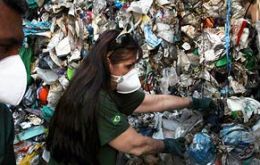
The Brazilian government said it will lodge a formal complaint with the World Trade Organisation over shipments of more than 1,000 tons of hazardous waste which arrived from Britain
-
Friday, July 24th 2009 - 14:15 UTC
Spain’s Moratinos defends “the photo of shame” in Gibraltar

Spanish Foreign Minister Miguel Angel Moratinos defended his visit to Gibraltar on Spain’s Radio Nacional amidst severe criticism mainly from the right wing press. The front page of El Mundo was a banner headline declaring the picture of the three ministers at the top of the Rock as ‘The Photo of Shame’.
-
Friday, July 24th 2009 - 14:00 UTC
Major world campaign against Foot and Mouth Disease
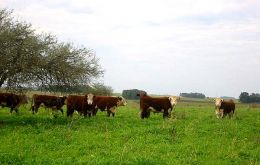
A major offensive aimed at bringing Foot and Mouth Disease (FMD) under global control has been launched by FAO and the Paris-based World Organisation for Animal Health (OIE).
-
Friday, July 24th 2009 - 13:54 UTC
Argentine scientists identified the complete genome of A/H1N1 virus
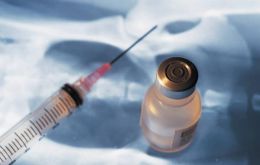
Argentine health authorities announced this week they had identified the complete genome of the A/H1N1 flu virus which so far has caused almost 200 deaths according to official numbers.
-
Thursday, July 23rd 2009 - 14:55 UTC
Controversy as Israeli Foreign Minister begins South American tour

Israel's foreign minister ran into controversy on the first day of a Latinamerican trip when an official of Brazil's ruling party reportedly called him a “fascist”. Israel's Haaretz newspaper reported that Valter Pomar, secretary of international relations for the Workers Party, described Avigdor Lieberman as “a racist and a fascist” during an interview
-
Wednesday, July 22nd 2009 - 07:08 UTC
British Parliament clean up bill has received Royal Assent
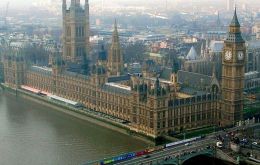
A bill aimed at cleaning up Parliament after the MPs' expenses scandal has become law after getting Royal Assent. Just weeks after the Parliamentary Standards Bill was introduced, it is now on the statute book after a series of concessions by the government.
-
Tuesday, July 21st 2009 - 22:42 UTC
UK government borrowing soars and is equivalent to 56% of GDP
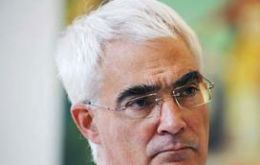
The United Kingdom government borrowing swelled by £13 billion in June to take overall net debt to its highest proportion of UK output since records began, official figures showed.
